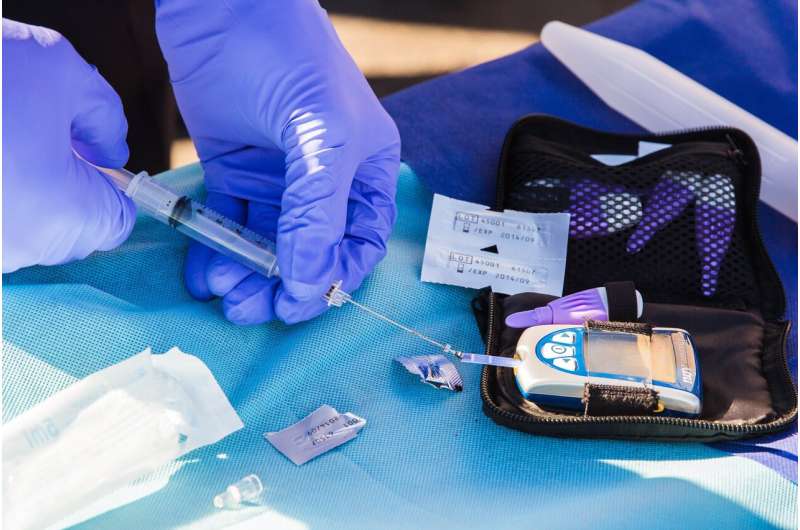
Black and Hispanic people with COVID-19 and diabetes are more likely than Caucasians to die or have serious complications, according to a new study published in the Endocrine Society’s Journal of Clinical Endocrinology & Metabolism.
Health disparities refer to unequal health status or health care between groups of people due to differences in their background, physical traits or their environment. These differences include race/ethnicity, country of origin, sex, income and disability. Minorities are disproportionately affected by diabetes and COVID-19 and are more likely to develop serious complications like diabetic ketoacidosis, a condition that occurs when your body produces high levels of blood acids.
“This is the first major study to examine racial-ethnic inequities for people with type 1 diabetes and COVID-19 that are brought on by structural and systemic racism,” said study author Osagie Ebekozien, M.D., M.P.H., of the T1D Exchange in Boston, Mass. “We used a diverse cohort of patients with type 1 diabetes and found there is a significantly increased risk of worse outcomes for Black and Hispanic patients with COVID-19 and diabetes.”
The researchers analyzed data from 180 people with type 1 diabetes and COVID-19 from 52 clinical sites in the United States. The study found Black patients were four times more likely to be hospitalized for diabetic ketoacidosis than Caucasians. Black and Hispanic patients were also less likely to use diabetes technology like continuous glucose monitors (CGMs) and insulin pumps, and they had worse glycemic control than Caucasian patients.
Source: Read Full Article
